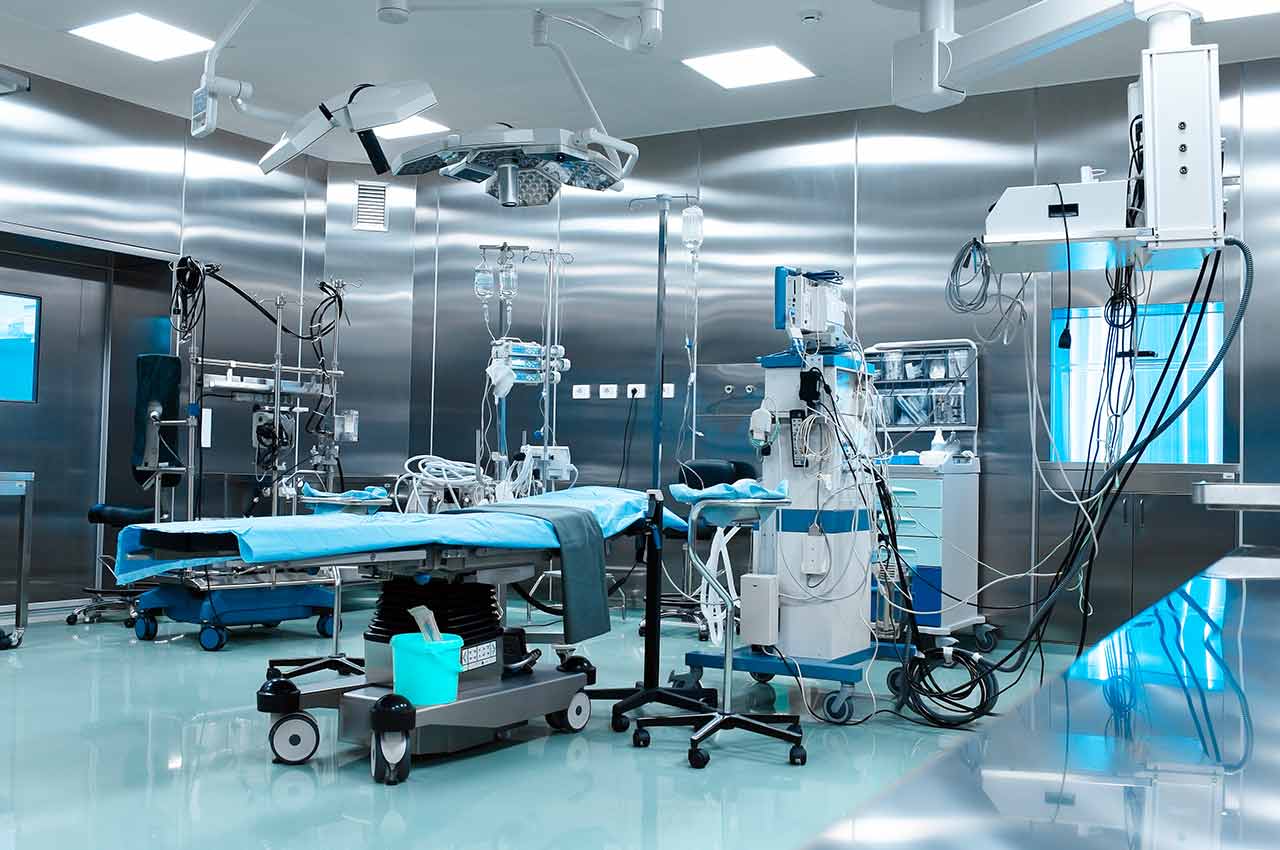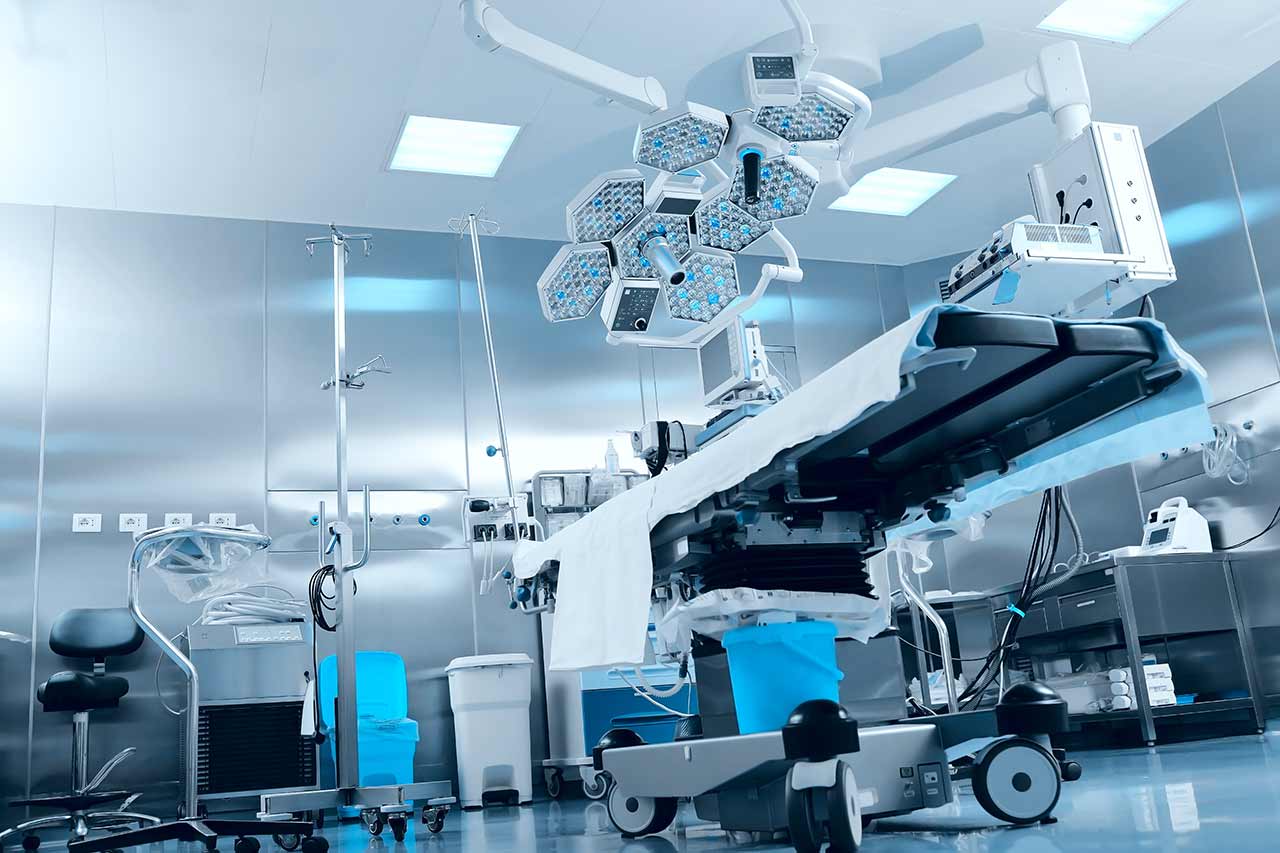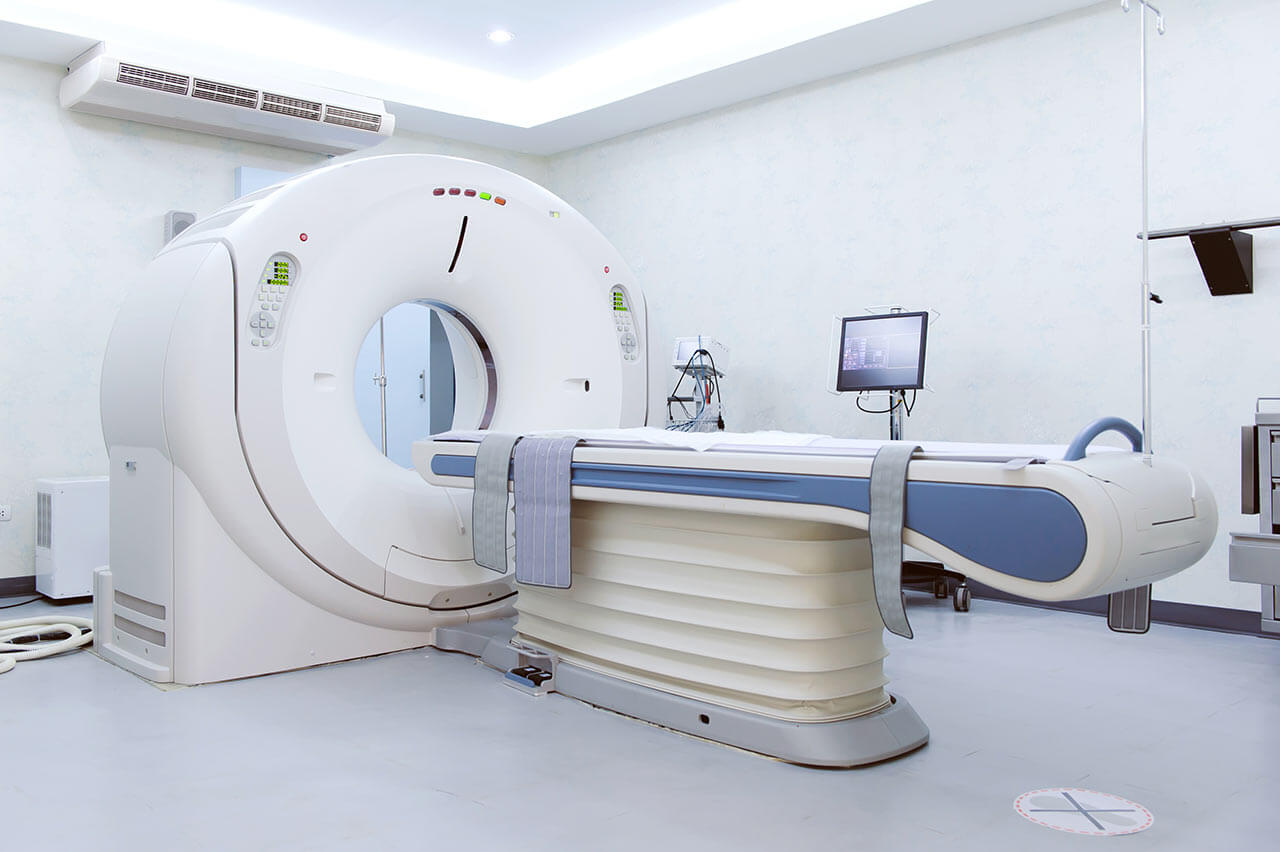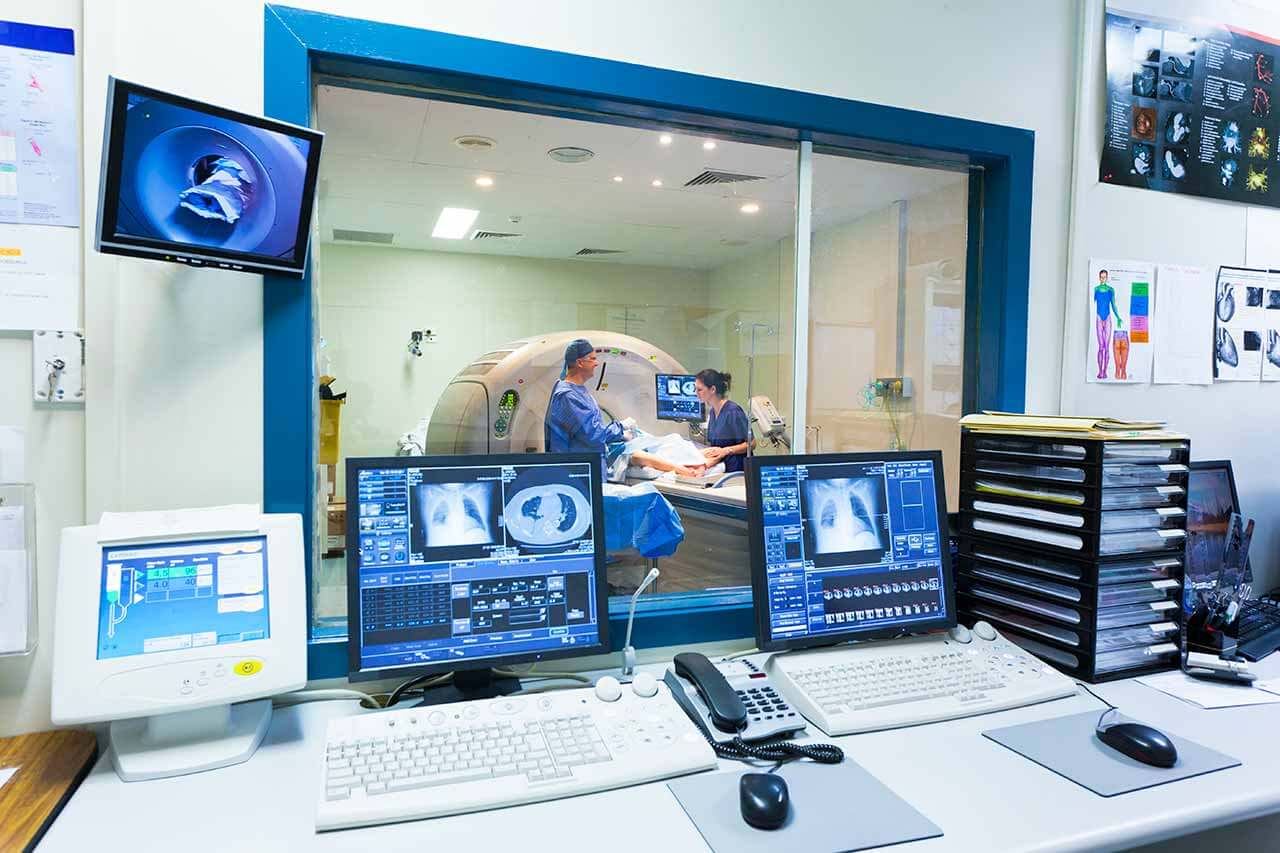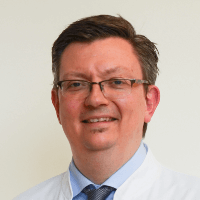
The program includes:
- Initial presentation in the clinic
- clinical history taking
- physical examination
- laboratory tests:
- complete blood count
- general urine analysis
- biochemical analysis of blood
- TSH-basal, fT3, fT4
- tumor markers
- indicators of blood coagulation
- CT scan / MRI of the abdomen
- abdominal ultrasound scan
- 1 course of chemotherapy
- nursing services
- consultations of leading experts
- explanation of individual treatment plan
How program is carried out
During the first visit, the doctor will conduct a clinical examination and go through the results of previous laboratory tests and instrumental examinations. After that, you will undergo an additional examination, including laboratory assessment of liver and kidney function, ultrasound scan. Based on the received results, the doctor will elaborate the chemotherapy regimen. If necessary, related medical specialists will be involved in the elaboration of a treatment regimen (tumor board).
Chemotherapy is carried out as the day hospital procedure, without mandatory admission to the hospital. After the placement of a venous catheter, you will stay in a comfortable ward. An infusion system will be connected to the catheter, through which the required drug or a drug combination will be administered. All drugs are administered by intravenous drip, slowly, so the total duration of the infusion can be up to several hours. All this time, doctors and nurses will monitor your health condition closely.
After the course of chemotherapy, you will stay under medical supervision in the ward for a few more hours. If your general condition is good, your doctor will allow you to leave the hospital. You will receive the medical report with detailed recommendations regarding further treatment. In the future, you will be able to have a distant consultation with your attending physician and schedule the next course of chemotherapy, if necessary.
Required documents
- Medical records
- MRI/CT scan (not older than 3 months)
- Biopsy results (if available)
Service
You may also book:
 BookingHealth Price from:
BookingHealth Price from:
About the department
The Cancer Center at the University Hospital Frankfurt am Main offers the comprehensive diagnostics, effective treatment and follow-up care for patients with cancer of varying severity. Thanks to the productive research work of the center's specialists, it offers the most modern and unique treatment methods, which have no analogues in most other countries of the world. Clinical activities are mainly focused on the treatment of breast cancer, cancer of the female reproductive organs, prostate, intestinal cancer, skin cancer, head and neck tumors, malignant diseases in children, lung, liver, stomach, pancreas cancers and neuro-oncological tumors. To ensure comprehensive medical care, there is maintained close cooperation with specialists from all related fields. The center is headed by Prof. Dr. med. Christian Brandts.
The center regularly carries out interdisciplinary tumor boards, during which the doctors examine each clinical case and cooperatively determine the optimal treatment regimen. If desired, the patients can undergo treatment within the clinical trials of new drugs, therapeutic techniques. In addition to the main treatment, important role is given to psycho-oncological care, since in many cases the treatment success is determined by the patient's positive attitude towards a favorable outcome. The patients with advanced stage cancer are provided with high-quality palliative care, which helps to improve the quality of life. In addition, due attention is paid to the follow-up care of patients and the relapse prevention.
The center is certified in accordance with the standards of the German Cancer Aid. The center's doctors have a perfect command of all the classical and innovative treatment methods for oncological diseases, which in combination with the modern infrastructure, makes the center one of the leaders both nationally and internationally.
The doctors of the center specialize in the diagnostics and treatment of the following oncological diseases:
| Breast cancer |
| Cancer of the female reproductive organs (uterine cancer, cervical cancer, vulvar cancer, ovarian cancer) |
| Skin cancer |
| Bowel cancer |
| Stomach cancer |
| Pancreatic cancer |
| Liver cancer |
| Lung cancer |
| Head and neck tumors |
| Tumors of the central and peripheral nervous system |
| Prostate cancer |
| Childhood cancers |
| Other types of cancer |
The therapeutic options of the center include:
| Surgical treatment |
| Chemotherapy |
| Radiation therapy |
| Immunotherapy |
| Treatment within the clinical trials |
| Self-help groups |
| Palliative care |
| Psycho-oncological care |
| Follow-up care for patients in remission |
| Other treatment options |
Curriculum vitae
Education
- 1989 - 1996 Study of Medicine at the Free University of Berlin.
- 1993 - 1994 Study of Medicine at New York University.
Professional Career
- 12.1996 - 01.1999 Resident, Charite University Hospital Berlin.
- 1999 - 2002 Postdoctoral Fellow, Cancer Research, University of California, San Francisco.
- 02.2002 - 07.2007 Resident, University Hospital Muenster.
- Since 2007 Physician, Hematology and Oncology, University Hospital Frankfurt am Main.
- Since 2016 W3 Professor and Director of the Cancer Center, University Hospital Frankfurt am Main.
Licenses and Certificates
- 2006 Board certification in Internal Medicine.
- 2007 Board certification in Hematology and Oncology.
- 2015 Board certification in Palliative Care.
Photo of the doctor: (c) Universitätsklinikum Frankfurt
About hospital
According to the reputable Focus magazine, the University Hospital Frankfurt am Main ranks among the top German medical facilities!
The hospital was founded in 1914 and today is a well-known German medical facility, which combines rich traditions and scientific innovations. A medical team of more than 6,500 employees cares about the health of patients around the clock, ensuring them with the highest standards of medical care and best possible safety.
The hospital has 32 specialized departments and more than 20 research institutes, which have all the necessary resources for the provision of the most effective care for any patient. The hospital has 1,488 beds for inpatient medical care. The medical facility diagnoses and treats more than 51,000 inpatients and about 44,800 outpatients every year. Due to the demonstration of outstanding treatment results, the number of patients seeking medical care here increases significantly annually.
The hospital presents all areas of modern medicine, whereas its special competence lies in neuroscience, oncology, cardiovascular medicine, cardiac surgery and other fields. Many treatment methods available here are unique not only in Europe, but also internationally.
Photo: (c) depositphotos
Accommodation in hospital
Patients rooms
The patients of the University Hospital Frankfurt am Main live in comfortable rooms made in modern design and meeting the highest standards of European medicine. Each room is equipped with an ensuite bathroom with a toilet and a shower. The standard room includes a comfortable, automatically adjustable bed, a bedside table, a wardrobe, a table and chairs for receiving visitors and a TV. If desired, patients can use Wi-Fi. The patients can also stay in the enhanced-comfort rooms.
Meals and Menus
The patient and his accompanying person have a daily choice of three menus. If for any reason you do not eat all the food, you will be offered an individual menu. Please inform the medical staff about your dietary preferences prior to the treatment.
Further details
Standard rooms include:
Religion
Religious services are available upon request.
Accompanying person
During the inpatient program, an accompanying person may stay with you in a patient room or in a hotel of your choice.
Hotel
During the outpatient program, you may stay in a hotel of your choice. Managers will help you choose the most suitable options.
